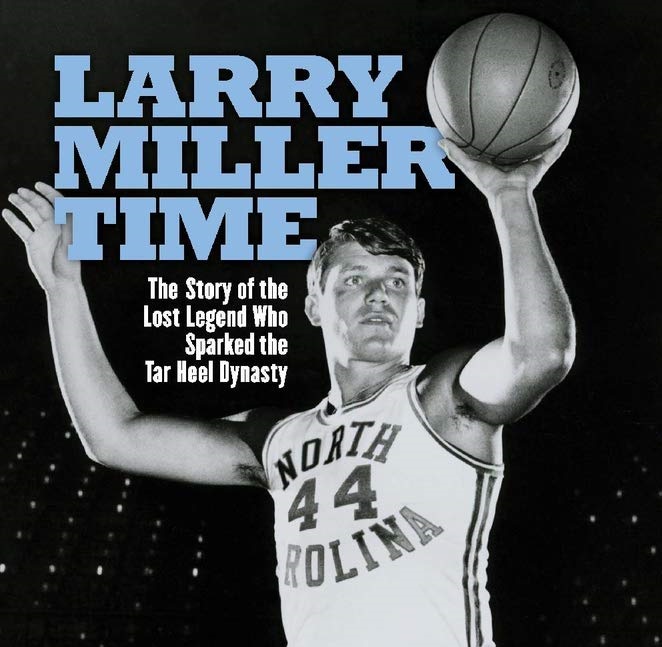There were lots of reasons some people in Avery County wanted to stop a rock mining operation on the beautiful Belview mountainside.
*Tracy and her Aunt Ollie, because preliminary blasting operations had cracked the foundation of their house.
*Faye Williams, whose home adjoined the mine site, because of the unbearable noise and dust; and
*Jay Leutze, a UNC-Chapel Hill law school graduate who had fled urban life to write novels in the peace and quiet of the mountains. Now he faced the prospect of constant noise from the massive rock crushing machinery that would be a part of the mine.
Not everyone in Avery County opposed the mine, as Jay learned after Tracy and Ollie persuaded him to try to stop the operation.
Louise Buchanan, postmistress in nearby Minneapolis, told Jay with pride that it was “going to be the biggest surface mine in western North Carolina. Right here in little old Dog Town!”
He learned that Paul Brown, the rock mine owner, was an influential businessman with many powerful friends.
Avery County desperately needed the jobs that the mine would provide.
The story of how Tracy, Ollie, Faye, and Jay gathered a host of allies to mount a successful effort to stop the mining operation is told in his book, “Stand Up That Mountain: The Battle to Save One Small Community in the Wilderness Along the Appalachian Trail.”
In the end, the decision that stopped the mine had little or nothing to do with the cracked foundation of Ollie Cox’s house, or the noise and dust Faye Williams feared, or the disruption of Jay Leutze’s peace and quiet.
Nor did the decision turn on the jobs and other economic benefits the mine might have brought to Avery County.
The critical fact that made it possible to stop the mine concerned the experience that hikers on the Appalachian Trail would have as they passed near by the mining site.
The rock mining operations would mar one of the most beautiful views hikers experience along the trail.
How and why the opponents of the mine used the Appalachian Trail as the linchpin in their effort to stop the mine is an important part of Leutze’s saga.
That story, by itself, is reason enough to read “Stand Up That Mountain.”
Leutze takes his readers from the creeks, coves, and courthouse of Avery County to the Raleigh offices of state government bureaucrats. Though these officials are charged with administering state laws objectively and perfectly, they are really human beings, subject to error and misjudgment and the influence of those they like and respect.
Leutze’s readers also see inside law offices. Leutze lets them hear lawyers size up the legal strengths and weaknesses of their cases and of the judges who will hear their arguments. Finally, he lets his readers experience, as he did, the agony of defeat and the thrill of victory that come with the clash between vigorous advocates of important but different positions.
What turns this important report of a public-policy struggle into a literary masterpiece are Leutze’s storytelling talents. He introduces characters and tells things about them that make us care. He records their voices and captures the revealing ways people talk, mountain people, lawyers, bureaucrats, lawyers, and judges. He uses those characters to help him tell the story. And he opens himself, writing with passion about things that move him.
With the mountain peace and quiet for which he fought so hard now secure, Leutze can again turn his magnificent talents to writing fiction. The results will surely bring to North Carolinians another outstanding novelist they can be proud to share with the rest of the world.
Related Stories
‹

One on One: John Rosenthal Asks, Why?Why? Why? Why? This question haunts anyone who has lost a family member or friend to suicide. We deal with the question of what could we have done and wonder why it had to happen? North Carolina’s famed photographer John Rosenthal faced these questions in 1965 when his friend, a former girlfriend, Amylu Danzer, took […]

One on One: Deciding Who Leads A UniversityWho runs the university? What university are you asking about? Well, for example, Fayetteville State University, one of the 17 institutions that are part of the University of North Carolina, now known as the UNC System. Clearly, the recently appointed chancellor of FSU, Darrell Allison is the leader of that institution. But others share his […]
![]()
One on One: When Do We Change Names and History?Last week the Raleigh City Council removed the historic designation of Wakestone, the former home of Josephus Daniels. That action is just one more reminder of North Carolina’s and the nation’s struggle to find agreement on what people should be honored and what versions of history should be taught in our schools. The unanimous action […]

One on One: John Hart’s Grim ReturnJohn Hart can flat-out write,” says bestselling author David Baldacci. Hart proves it again with his latest, “The Unwilling,” 150,000 copies of which have been printed to be ready for release this week. It’s been almost 15 years since former North Carolina lawyer John Hart hit the big […]
![]()
One on One: Three New North Carolina-Connected CongresswomenThree North Carolina-connected women Democrats broke the mold in the recent congressional elections. The “mold” was Democrats losing congressional seats to Republicans. These three women won seats that were previously held by Republican men. All three are the sorts of smart, experienced, hard-working people who have the potential to be leaders in Congress. All three […]

One on One: Another InoculationWe got inoculated last week. Or, I think we did. I hope we did. I am not thinking about the COVID vaccine that some got recently and others, I hope, will be getting soon. Nor am I thinking about flu shots or measles. I bet you remember the smallpox vaccine that many of us got […]

One on One: The College Sports We Want To SaveIs the U.S. Supreme Court going to put college athletics out of business? Last week it agreed to decide whether the NCAA’s limits on compensating college athletes violate antitrust laws. Or is it the NCAA that is changing important sports traditions by loosening to the point of elimination its rules limiting transfers of college athletes […]
![]()
One on One: Jim Crow Is Still Alive in North CarolinaUnbelievable when you think about it, how North Carolina maintained its segregated and discriminatory racial system for such a long time. The remnants of what is commonly called “Jim Crow” are still with us, a daily reminder of the horrors of the past. A new book, “Jim Crow in North Carolina: The Legislative Program from […]

One on One: Books for Holiday GivingIf you are worried about holiday gifts or selections for your book club’s reading, here are some good North Carolina-connected books to consider. Three beloved North Carolina authors have new books that would be perfect for fiction fans: Allan Gurganus, author of “The Oldest Confederate Widow Tells All,” gives us a crop of his best […]

One on One: Greek and Hebrew Guides to Our Political DifferencesHow can ancient Greek and Hebrew thinking help us understand why our friends who support other political candidates see things so differently from us? Why are we locked into such different positions? It is dangerous for anyone to try to explain why people support opposing political figures or different political parties or programs. We sometimes […]
›








